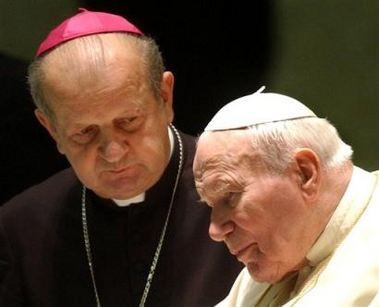
There are rumors in Rome that Archbishop Piero Marini, Papal Master of Ceremonies, was admitted to Gemelli Hospital on Monday. The details of his condition are not available and no official statement has been made. It seems to be the common belief that his illness is cardiac related.
I did notice during the numerous consistory events that Archbishop Marini seemed tired, distracted and off his game.
I spoke with him briefly on Friday afternoon and he seemed to be stressed. Perhaps the hectic events of the week were simply too much for him.
On a related note, the Holy Father also seemed very tired as the week went on. At the least, I know they exhausted me.
Let us pray that the Archbishop recovers his health quickly and returns to the Holy Father's side.
Photo by Domini Sumus















